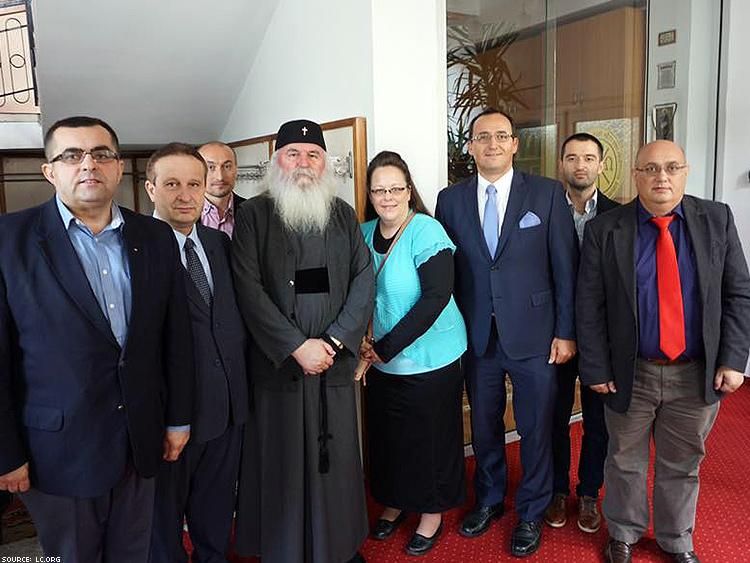For National Coming Out Day, GLAAD is sharing the #ComingOutAnthem stories of some of our bi+ (bisexual, pansexual, fluid, queer, etc.) staff members to shine a spotlight on the importance of media representation for bi+ people during their coming out experiences.
For most people in the LGBTQ community, there is no one way to come out, or one specific time where you can come out entirely, but coming out for a bi+ person can look a lot different from others in the community. Bi+ people are often asked to reaffirm their identity throughout their lives, even after coming out as bi+, as though to suggest bisexuality+ is a phase or not a valid identity. These inquiries do not always come out of a place of malice, but the consistent ignorance, doubting, and questioning that others display toward bisexual+ people add to a culture of biphobia and bi+ erasure within and beyond the LGBTQ community.
Bisexual, queer, pansexual, polysexual and fluid people know all too well that finding representation in the entertainment industry can be a frustrating challenge. Bi+ identities are underrepresented in almost every form of media, yet bisexual people comprise the majority of the LGBTQ community. Even when bisexual+ people are included in media, their identities are often erased, stereotyped, or minimized.
It is critical to push for inclusivity and representation in the music industry so that young bi+ fans and artists can be inspired by an anthem and so they can see themselves and hear their lives being reflected in this art form.
.@Halsey & @LaurenJauregui‘s “Strangers” is a long-overdue bisexual milestone in mainstream music t.co/z2UFdiVJ90 pic.twitter.com/DdXxHkfcKZ
— billboard (@billboard) June 6, 2017
LGBTQ visibility in music is often left out of the larger conversation regarding diversity and representation in the entertainment industry. Even when LGBTQ fans outspend non-LGBTQ fans by 48% annually on music each year, and reporting suggests that over 20% of young people identify as LGBTQ, the music industry continues to maintain a cisgender, straight boys club in mainstream genres. Despite–and perhaps because of–these barriers, LGBTQ music fans are turning to artists and genres that empower them to feel seen and represented.
Bi+ identified artists, like Lady Gaga, Halsey, Frank Ocean, Kehlani, Lauren Jauregui, and Kesha are some of music’s biggest stars, and it is arguably because of their willingness and ability to express themselves authentically.
In 2017 alone, there have been a number of bi+ artists have released anthems appreciated by LGBTQ and ally fans alike. Check out just a few below:
Music has always been and will continue to be important to LGBTQ people and the way we express ourselves. Authentic expression through song has the power to transform individuals, even influence a movement, and change culture. Post the name and artist of your #ComingOutAnthem and tell us how the song relates to your experience.
For inspiration, check out some of our favorites from our bi+ staff members below.
Alexandra Bolles
Associate Director of Campaigns

#ComingOutAnthem: We Found Love by Rihanna
Society tells bi+ people constantly that their identity isn’t real and urges them to “pick a side.” For me, and I think for a lot of other bi+ people, that translates into internalized biphobia and years of telling yourself who you are isn’t real and trying desperately to convince yourself you’re something you’re not, such as gay or straight. For about 15 years, I went back & forth, trying and failing to come out to myself and the people I loved, or trying and failing to convince myself I was straight. In June 2012, I went to my first Pride march. I couldn’t stay long because I had to get to my shift at my retail job, but I watched for a few minutes. One group that went by played “We Found Love” and I got to thinking about how hard it is to love yourself as a marginalized person and to be proud about the love you have to give to others when the world tells you it’s wrong and you’re wrong. I started to get emotional as I realized I was part of the LGBTQ community, despite my best efforts not to be, and how deeply I wanted to love that part of myself. It was a very “Oh my God, I love Josh”/Cher Horowitz/Clueless moment. But anyway, that song really marks a turning point in my journey to learn to love my queerness. I started to come out slowly that summer, at first just to myself, and then a year later to my friends and family as bisexual. Coming out is a perpetual, lifelong process, but that summer was a milestone for me. Listening to that song now always makes me feel a little triumphant, like a wink to myself.
Sue Yacka-Bible
Director of Communications

#ComingOutAnthem: We are the Champions by Queen
My twin brother came out as gay and I came out as bi to one another on the same day! We were about 18, driving to a mall in New Jersey, and very likely listening to a worn out copy of Classic Queen, one of our favorite albums and bands, on cassette. I’m proud of our conversation that day, our lifelong, supportive friendship, and the opportunity to celebrate our identities today.
Jillian Lynch
Operations Coordinator

#ComingOutAnthem: I’m Beautiful by Bette Midler
Though Tegan and Sara’s So Jealous and The Con helped me navigate my post puberty LGBTQ identity, Bette Midler’s “I’m Beautiful” really helped me embrace both my biracial and bisexual identities at a young age. When Bette sang “Ain’t this my sun? Ain’t this my moon? Ain’t this my world to be who I choose?” I felt like she was singing directly to me and couldn’t help but to shout a resounding YES in response! This song has always been there to encourage me to be my most unapologetically, authentic self and I hope it will continue to do the same for others for many years to come!
Mackenzie Harte
GLAAD Media Institute Coordinator

#ComingOutAnthem: In or Out by Ani Difranco
This song is so important for the bi+ experience. It was one of the first songs that I heard that directly addressed being bi+ in a nuanced manner; Ani sings both about how bi+ individuals will be perceived as straight by some groups and as gay by other groups. However, she makes clear that she is neither straight nor gay, she is bi+ and can love anyone as a person. As she sings, “I’ve got no criteria for sex nor race/ I just want to hear your voice/ I just want to see your face.” A wonderful song to remind bi+ people that they are real, valid, and deserving of all the joy and love that will come their way.
Clare Kenny
Campaigns Manager

#ComingOutAnthem: Just the Same but Brand New by St. Vincent
I first heard this song by my favorite artist, St. Vincent just after I had come out as queer in college. The song and sentiment completely expressed how I felt at the time. The title really explains the connection – I am just the same as I have always been, except now I am finally the happiest, most authentic version of myself. After coming out as queer I felt brand new. I felt like I could begin a life for myself that was more loving, passionate, and real. But at the same time I knew I didn’t change or become someone else – I was just finally becoming myself. The song is beautiful and strange and has a sick instrumental ending. It makes me so happy to listen to, cry to, and remember the feeling of letting go of the expectation that I had to be anything else but my queer self.
Taylor Behnke
Digital Director

#ComingOutAnthem: Then Ok by Julia Nunes
Coming out as bisexual took me a really long time, even to come out to myself. Whenever I felt attracted to people of my same gender I found ways to explain it away because I thought it wasn’t okay or normal to have those feelings. This was the first song I heard (by a queer artist) that captured both the fear and the thrill of having your first same-gender crush. It told me that if this is how you really feel? Then okay. You’re okay.
Post your own #ComingOutAnthem by using the hashtag and tagging @glaad on Twitter, Facebook, Instagram, and Tumblr!
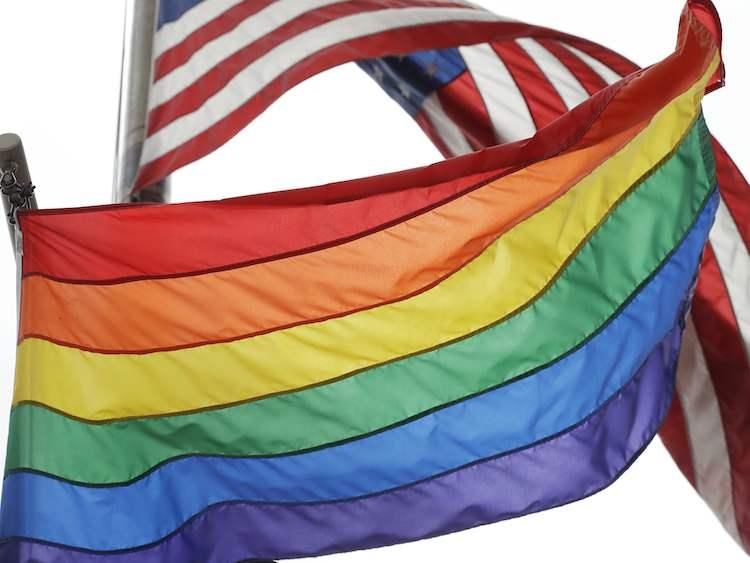

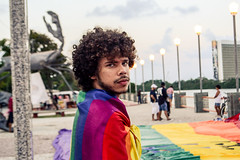
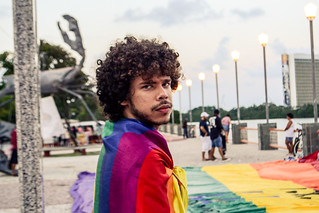








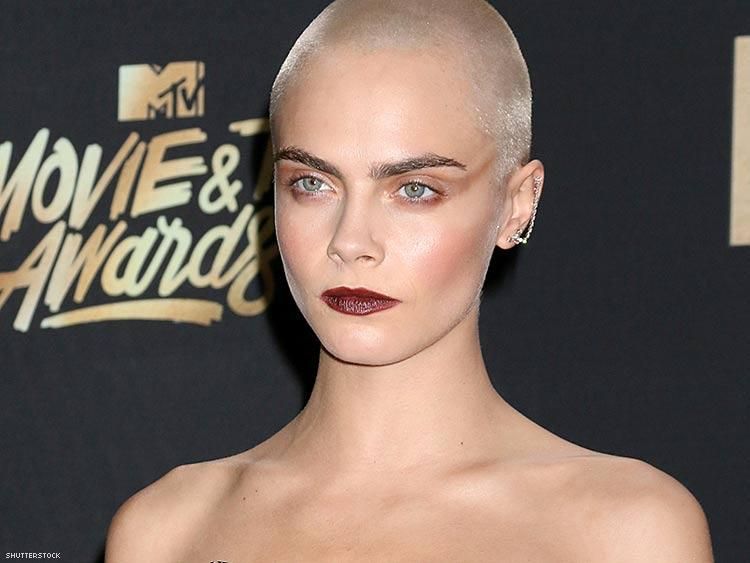
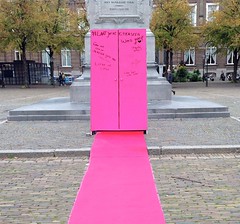
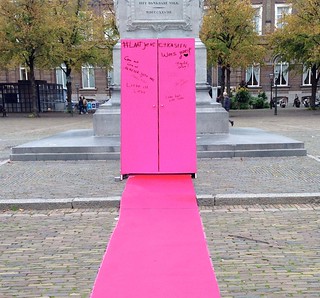
 NFL.
NFL.





